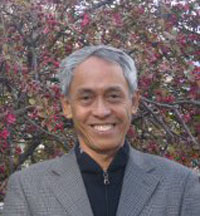I see that proportional representation (PR) has touched a nerve in this country. I had been an early proponent in proposing PR, but altogether awareness-raising has been less than adequate. So now, as the introduction of PR in Myanmar’s elections has become a very real prospect, it has turned into an emotive and even reflexive issue.
Myanmar is coming to a turning point in its elections system and we are a little short on time. Therefore I think it is important to present non-party views that are specific to Myanmar’s situation, in an effort to defuse feelings which are running high and to allay suspicions, and thereby alleviate the divisiveness. It is not going to be a case of PR being forced upon the country: A parliamentary process has been set in motion, committees on PR have been formed in both Houses, and debates have taken place.
It was an occasion for joy and celebration when multi-party democracy returned to Myanmar. Let us not forget that it has come at great cost—the anniversary of the Four Eights that was marked in front of Yangon’s City Hall is a poignant reminder of that. There are more parties now and more political stakeholders than in the past. We have to ensure that this revived multi-party system works well, and fairly and equitably. With Myanmar’s diversity, special attention has to be given to having breadth, inclusion and equitable representation in politics. Moreover, preparing for federalism and the long-deferred need for nation-building cannot be left out.
The first-past-the-post (FPTP) system that Burma/Myanmar has practiced from independence is of course simple and easy to understand and implement. But it comes with certain drawbacks. It is a case of winner-takes-all and therefore exclusionary. The notion of a loyal opposition has not registered well in Myanmar, and coalition politics remains an untested uncertainty. Much that is decried about electoral democracies would stem from the sequelae of FPTP.

One might ask: Why are you lobbying so much for PR? It has never been tried here and who knows whether it will work? The reply would be that of a parent of a child with cerebral malaria where all the standard treatments have failed. If someone were to come up and offer a new drug that has passed the experimental stage and found to be effective, what would that parent say?
National Politics and Government
Simply put, PR means that the runners-up parties in an election will be within Parliament and even government, instead of outside. This lessens the chances for an adversarial opposition attacking the government and party in power at every turn. Policy changes, even critical ones, can be agreed upon and effected without having to change the entire government—either by bringing down the incumbent or waiting for the next elections. It can be said that coalitions are built into the system.
Ethnic Nationalities
It is ironic—in light of the fervent opposition being displayed—that PR had been originally intended with the ethnic nationalities in mind. The ethnic parties are terrified of losing their present number of seats and it is natural to want to win more seats. Since virtually all our ethnics vote along ethnic lines, the party representing the largest ethnicity in a constituency is assured of winning in a FPTP. However the majority of the constituencies in the seven states are composed of two or more ethnic groups. What happens to the smaller ethnicities whose parties do not win?
Even if inter-ethnic tensions are discounted, the present FPTP system will entrench what can be called “enclave democracy”—that is, a country dotted with ethno-political enclaves that do little to build a multi-ethnic nation. I would also like to remind our ethnic nationality brethren that even now they have an advantage in that Myanmar’s electoral constituencies are co-extant with administrative townships. (This is an expediency practiced since 1990). This being so, all the ethnic nationalities have more seats in legislatures in proportion to their populations.
Flexibility of PR
PR is not a hard-and-fast system; indeed there is an inexhaustible list of variations, hybrids and custom-tailored versions. Combinations with FPTP are commonly employed. And that is why an en bloc dismissal of PR can only come from incomplete understanding and vested/parochial interests.
In retrospect, Myanmar should have started looking to PR around the time of the 1990 elections. It is safe to conclude that nobody did, including this writer. There had been an earlier elections commission but sadly, it had been composed of persons who had looked to the past rather than to the future. Now, PR is being debated all over, which is to the good. Some of the reactions are highly strung, which is still OK in a democracy.
PR is not to be regarded as a panacea and a cure-all. Let me put it this way—it is a means to be kinder to ourselves, to our fellow citizens and non-citizens, and to our troublous country. Ten years from now, we could look back and feel grateful that PR was adopted.

















